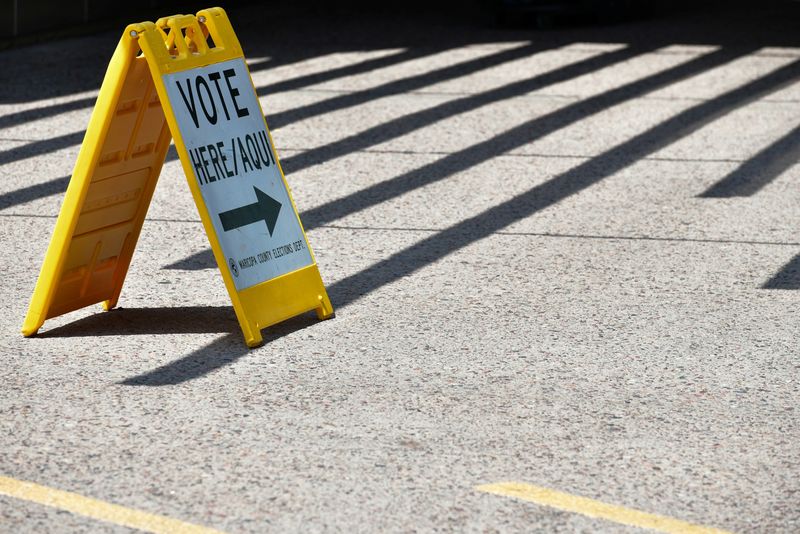US Supreme Court partly revives Arizona’s proof of citizenship voter law
2024.08.22 14:33
By John Kruzel
WASHINGTON (Reuters) -The U.S. Supreme Court on Thursday revived part of an Arizona voter law requiring documented proof of U.S. citizenship to register to vote, in response to a request from the Republican National Committee and Arizona Republicans.
The justices agreed to reinstate a provision of the law after a federal judge blocked it in response to legal challenges by Democratic President Joe Biden’s administration and advocacy groups.
The decision comes before the Nov. 5 election in which Democratic Vice President Kamala Harris is facing off against Republican former President Donald Trump, who continues to falsely claim that his 2020 election defeat was the result of fraud.
Arizona’s Republican-controlled legislature adopted new restrictions on voter registration in 2022. The law requires applicants who submit a federal registration form to provide evidence of U.S. citizenship to vote in presidential elections or vote by mail in any federal election.
Voter registrants who use a separate, state-created form face even tighter restrictions. Without proof of U.S. citizenship, state applications are rejected in their entirety, and officials who fail to do so face a minor felony charge under the law.
The Supreme Court’s ruling revived the restriction related to the state voter registration form, but kept intact a judicial decision blocking the provision that sought to tighten limits on the federal form.
When Republican then-Governor Doug Ducey signed the legislation in March 2022, he said the measure balanced voting accessibility with election security.
“Election integrity means counting every lawful vote and prohibiting any attempt to illegally cast a vote,” Ducey said.
The Biden administration sued to block the Arizona law in July 2022, claiming it is superseded by a 1993 federal law called the National Voter Registration Act. The law says that states must register voters for federal elections after they submit the federal registration form, which requires a declaration of U.S. citizenship under penalty of perjury, but not documentary proof.
A separate legal challenge argued that the Arizona law violated a 2018 court-approved settlement requiring state election officials to register voters who lack documented proof of U.S. citizenship for federal elections, regardless of whether they use the federal or state form.
The Republican National Committee and Arizona’s top Republican lawmakers intervened to defend the law.
Phoenix-based U.S. District Judge Susan Bolton in September 2023 sided with the Biden administration and other plaintiffs in their challenge to Arizona’s proof of citizenship requirements. She blocked the state from barring federal-form applicants from voting for president or voting by mail, or rejecting state-form applications, for lacking citizenship documentation.
A three-judge panel on the San Francisco-based 9th U.S. Circuit Court of Appeals that reviewed the case on its merits declined to halt Bolton’s ruling. This prompted an emergency Supreme Court filing from the Republican National Committee and Arizona Republicans.
Arizona’s attorney general and secretary of state, both Democrats, opposed the Republicans’ request to the justices.
Arizona, which is expected to be one of the most competitive states in the November election, has been a flashpoint in the U.S. battle over voting rights.
A widely criticized Republican review of the 2020 presidential election found no evidence that irregularities marred Biden’s narrow victory over Trump.
Arizona enacted a law in 2005 requiring new voters to provide proof of citizenship, but the U.S. Supreme Court ruled in 2013 that the state could not impose that requirement on those who used a federal form to register. Since then, the state has allowed those voters to participate only in federal elections, not state or local races.

Arizona had more than 42,000 “federal only” registered voters as of July 1, according to state data.
The Republican-controlled U.S. House of Representatives earlier this year passed a similar bill requiring proof of citizenship to register to vote in elections, but it went nowhere in the Democratic-majority U.S. Senate.








